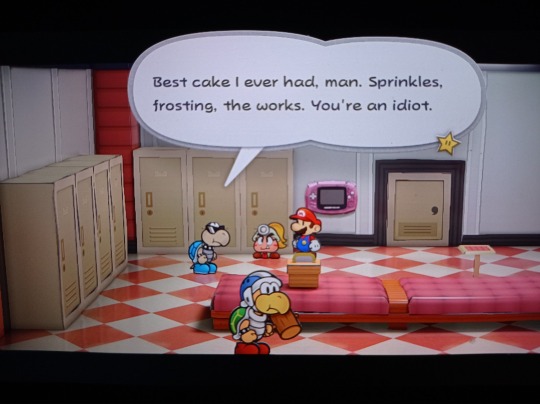[22 She/Her They/Them] Hello I'm Nova I like robots and space and a lot of other things. the sega saturn is the best sega console. icon by @vonkarn
Don't wanna be here? Send us removal request.
Text
By age 22 you should have a circle of at least five cool and weird trans women advising you at all times
2K notes
·
View notes
Photo

Cartoon Cowboy Boy NAmed Beebbop Di Beppo. His Signater Cactch Phrase: “Hah… Guess I Shotcha”
58K notes
·
View notes
Text
her enormous juicy interiority heaved against the fabric of her personhood, threatening to burst a seam with every swinging step of her strong female character
9K notes
·
View notes
Text
dragongirl gets caught in an awkward situation so she just panicks and sets the garbage can on fire and runs off
59 notes
·
View notes
Photo

Big little hug Commission for Umbrakiin
Posted using PostyBirb
115 notes
·
View notes
Text
March rent help!
hello! I am making this on my break at work, but I'm in need of assistance pulling March rent together. this should be the last time I have to do this since I have a job now, but I still won't see a full paycheck for three weeks.
0/495
venmo - https://venmo.com/rmck89
cashapp - https://cash.app/$clawshot
Kofi - https://ko-fi.com/roebeanstalk
as always, thank you so so much. whether you're pitching something in or reblogging or just being kind to me, it all means the world. thank youuuu.
456 notes
·
View notes
Text
i genuinely think boats are such good places to set a story because it automatically gives you a set of really interesting circumstances -- boats are transitory, you are not meant to stay on them forever, there is an automatic assumption of ending up somewhere different from where you started...characters are forced into close proximity, stakes are higher, etc. boats also just look cool, so that's always a plus
3K notes
·
View notes
Text

im literally always thinking about this funny little bart animation
4K notes
·
View notes
Text
can a schmovement girl and a fundamentals girl really fall in love?
688 notes
·
View notes
Text
god bless our troops [the ppl at ublock origin who keep updating the filters to keep working on youtube]
78K notes
·
View notes






